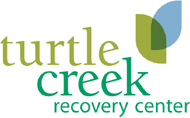What Are Opiates?
Opiates are a group of narcotics that are derived from either natural or synthetic opium. Opiates are often used medically as powerful pain relievers and can be found in most popular pain medications such as OxyContin, Vicodin, Percocet, and Oxycodone. While opiates have been long considered to be effective pain relievers, they can also be both physically and psychologically addictive when used in high doses for an extended period of time. Not only can the abuse of opiates lead to long term dependency and addiction, it also comes with a high risk of accidental overdose, which can sometimes be fatal.
Why Are Opiates Addictive?
Opiates can be extremely addictive for a number of reasons. One of the major reasons why opiates are so addictive is because is causes major and long-lasting chemical changes in the brain. When an opiate is taken, either through being injected or in pill form, it travels straight to the opiate receptors in the brain. Once it reaches the opiate receptors the brain begins to release endorphins, which are chemicals that produce a sense of euphoria, while helping to alleviate pain. After prolonged use, these opiates create a flood of artificial endorphins and signals to the brain to stop producing these natural pain relievers on its own. Over time, the brain will become completely dependent on these artificial endorphins to alleviate pain, and the individual will suffer from painful withdrawal symptoms if they have not recently taken the drug.
Opiate Addiction and Withdrawal Symptoms
After prolonged opiate use, whether it’s heroin or legal prescription drugs, the individual can grow completely physically and psychologically dependent to the drug. When this happens, the individual will start to suffer from what is known as opiate withdrawal syndrome. Symptoms of opiate withdrawal syndrome can include, but are not limited to:
- Cold sweating
- Nausea and vomiting
- Uncontrollable diarrhea
- Strong cravings
- Severe depression
- Extreme anxiety on the verge of panic
- Aching limbs
- Excessive yawning
- Insomnia
- Dilated pupils
- Shaking
- Muscle aches
- Chills
Opiate Rehab
If you are suffering from opiate withdrawal syndrome and are stuck in this vicious cycle of opiate abuse, then do not hesitate to contact an opiate rehab facility right away. Opiate rehab centers are specifically trained to treat the symptoms of an opiate addiction and have the medical expertise to see you through even the worst opiate withdrawal symptoms. Most opiate rehab centers offer great medically assisted detox programs where they will give you a drug like Suboxone to help ease the pain of your withdrawal symptoms. After the opiates have been fully cleansed from the body, the individual will begin dealing with psychological aspect of the addiction, which can take anywhere from weeks to even years depending on the severity of the addiction.
If you, or someone you know, is currently suffering from an opiate addiction, whether its heroin, morphine, or opiate based prescription pills, do not hesitate to speak with them right away about the potential benefits of visiting an opiate rehab program. There’s no reason to throw your life away, treatment is available.




